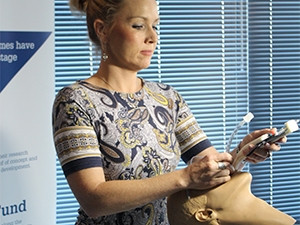
Seven innovators in the Western Cape have been provided with grants of up to R500 000 each during the second round of the Design Innovation Seed Fund (DISF2).
The set of entrepreneurs developed innovations which judges deem fit to lead to major advancements in the region's agri-processing, health and bio-tech, and the manufacturing sectors.
The DISF is a project of the Cape Craft and Design Institute (CCDI), with investment and management funds respectively provided by the Technology Innovation Agency (TIA) and the Western Cape Department of Economic Development and Tourism.
The first round of funding resulted in a total of R6.5 million being awarded to develop 12 innovative ideas in the province.
Erica Elk, executive director of the CCDI, says the DISF2 decided to specifically focus on assisting South African-developed designs and ideas in four priority areas that align with national and provincial priority sectors that will support economic growth.
"This round of funding saw a specific focus on the agri-processing, health and bio-tech, and the manufacturing sectors. After a successful first round, we decided that in our second round of funding we didn't want to just support innovation for its own sake.
"We had 57 applications in total, and we narrowed this down through a thorough due diligence process to a shortlist of those with the best potential. The sectors of the DISF2 focused on key sectors that can make a tremendous difference, not just to our economy and job creation, but also to people's lives in terms of the medical devices being funded."
The seven innovations selected for funding were:
- The SmartBlade, which harnesses smartphone technology to provide guided laryngoscopy.
- Optishut, an innovative medical device which offers the first real hope for definitive prevention of blindness caused by glaucoma.
- FlyH2A a UAV sterile insect release system combats the False Codling Moth, a pest that spoils fruits.
- A suction dissector device developed by DISA Vascular for blunt dissection of soft tissue.
- HIV testing solution MicroPatch, where all components of the test, including the blood collection mechanism and buffer delivery to the test sample, are integrated and contained in one device, reducing the chance of user error and increasing accuracy.
- A water soluble liquid oak extract that will reduce and replace the use of conventional barrels by Oranet.
- DNABurn, a nutritional product development.
Applicants to the DISF needed to show enough evidence of innovation in design, technology and/or its application; market appetite or sufficient evidence of market potential or competitive advantage; and a management team able to drive the process.
Alan Winde, minister of agriculture, economic development and tourism, said too many young businesses, and the jobs created thereof, fall to the wayside due to a lack of finance. "We launched this fund three years ago, in collaboration with like-minded partners, to give entrepreneurs from our region the kick-start they need to develop their ideas into reality. The number of good applications we received speaks to the wealth of globally competitive R&D currently being undertaken in our province. The Western Cape has become a hotbed for development."
CCDI is currently managing a R5 million investment in innovation through the second round of the DISF, with a further R7 million earmarked for investment mid-2017 through a third round of the DISF. CCDI is also initiating a R12.8 million fund to support job creation opportunities and the establishment of a R3.5 million loan facility.
Share